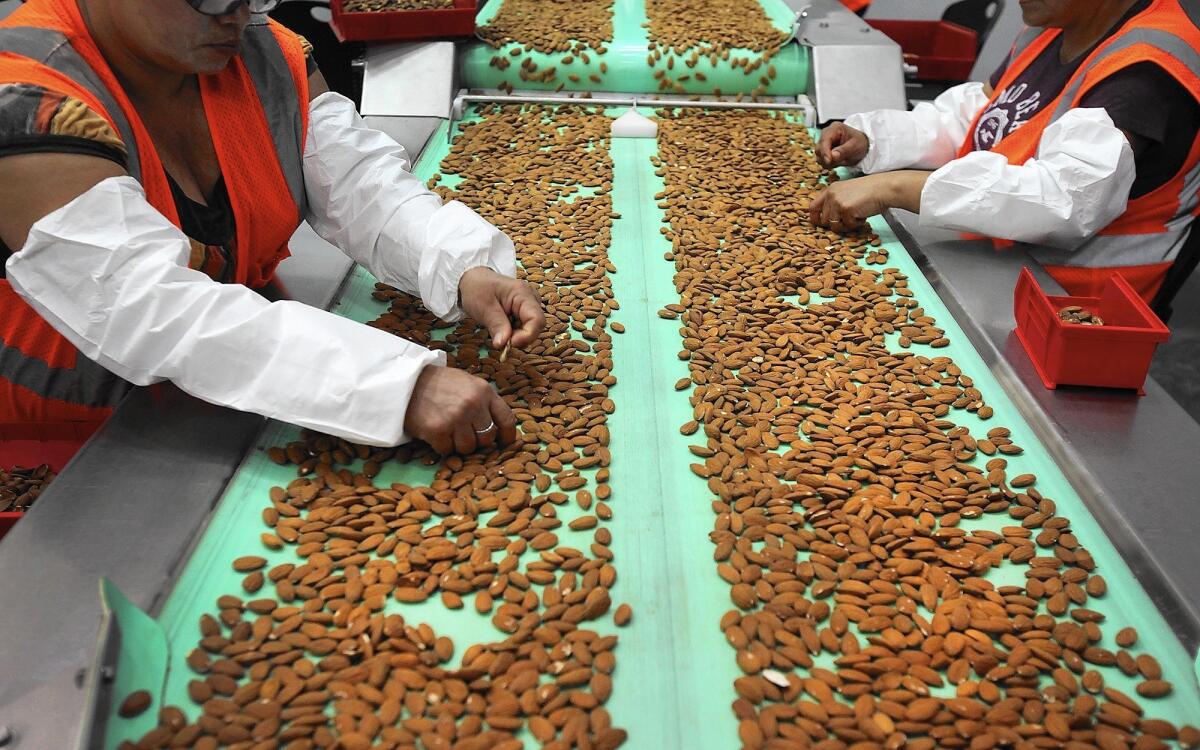U.S. growers worry over China’s economy

- Share via
California’s growers are casting a wary eye toward China, their third-biggest trading partner, because the devaluation of its currency is expected to make pistachios, almonds and other farm products more expensive.
Immediate effects are expected to be modest, given the small margin of adjustment in the yuan — more than 4% this week.
But if the move by Chinese authorities is a sign of more fundamental problems in that nation’s slower-growing economy, California agriculture could take a big hit, economists said.
“To me, it’s more about the concern that what’s happening here is a glimpse into a future that’s not as rosy and robust as we had hoped,” said Mechel Paggi, director of the Institute for Food and Agriculture at Cal State Fresno.
California sold $2.3 billion in agricultural products to China in 2012, with almonds, dairy products, wine, walnuts and pistachios making up the top five products, according to the California Department of Food and Agriculture.
About $391 million came from almonds alone, according to the U.S. Department of Agriculture.
California will dodge the biggest impact, which is expected to be soybean exports from the Midwest. Those account for nearly 40% of China’s agricultural commodity imports, by value.
The U.S. exports about 1.7 billion bushels of soybeans to China and Hong Kong, according to the American Farm Bureau Federation.
But nut growers will have to adjust their plans, which were largely grounded on rapid expansion of the Chinese economy, Paggi said.
“We planted a bunch of almonds and pistachios that won’t be bearing fruit for a few years to come. We’ve got a little more cushion” than soybean growers, Paggi said. “But more is coming online, and you have to find a home for it somewhere.”
The crisis could be a wake-up call for California growers dependent on rising commodity prices because of demand from China, Paggi said. Although China represents about 10% of the state’s foreign exports, it accounts for 35% of the state’s export of pistachios, 19% of its beef, 17% of its oranges and 16% of its almond and walnut exports.
“We need to pay real attention to this. It’s not an easy industry to be successful, long-term, in. And maybe all that growth in Asia has made it look a little easier than it is,” Paggi said.
More to Read
Inside the business of entertainment
The Wide Shot brings you news, analysis and insights on everything from streaming wars to production — and what it all means for the future.
You may occasionally receive promotional content from the Los Angeles Times.











